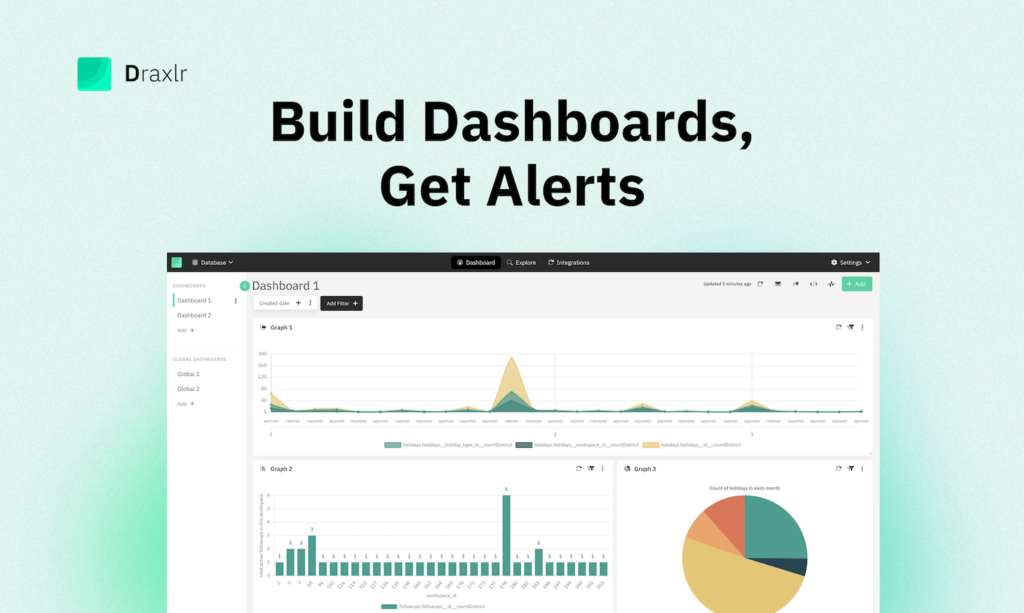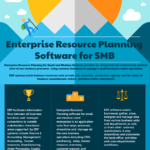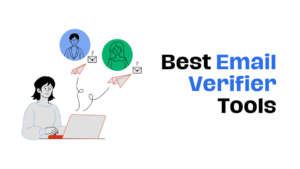Managing finances is crucial for any growing business. Effective budgeting tools can help streamline this process.
As businesses expand, keeping track of expenses and revenues becomes more complex. Modern budgeting tools offer a range of features to simplify financial management. They help businesses monitor spending, forecast future expenses, and ensure financial stability. These tools are designed to cater to various business needs, providing customizable options to suit different industries and sizes.
By using these tools, businesses can make informed decisions, plan for growth, and maintain financial health. In this blog post, we will explore seven modern budgeting tools that are ideal for growing businesses, helping you find the best fit for your financial management needs.
.jpg)
Credit: resume.io
Table of Contents
ToggleIntroduction To Modern Budgeting Tools
Managing finances is crucial for any business. Growing businesses often face budgetary challenges. Modern budgeting tools help manage these challenges efficiently. These tools offer advanced features to track expenses, forecast revenues, and ensure financial stability. They provide a clear picture of your financial health. This section introduces the importance and challenges of business budgeting.
Importance Of Budgeting
Budgeting is essential for businesses of all sizes. It helps in planning and allocating resources wisely. With a proper budget, businesses can:
- Control spending: Avoid unnecessary expenses.
- Forecast revenues: Predict future income accurately.
- Set financial goals: Aim for achievable targets.
- Ensure financial stability: Maintain a healthy cash flow.
Modern budgeting tools streamline this process. They provide real-time data and insights. This helps in making informed decisions. These tools also offer features like automated reports, expense tracking, and budget forecasting. This ensures that businesses stay on track with their financial goals.
Challenges In Business Budgeting
Budgeting can be challenging for growing businesses. Some common challenges include:
- Unpredictable expenses: Unexpected costs can disrupt budgets.
- Revenue fluctuations: Inconsistent income makes planning difficult.
- Resource allocation: Allocating funds to the right areas is crucial.
- Time constraints: Budgeting is time-consuming and requires constant monitoring.
Modern budgeting tools help address these challenges. They provide a comprehensive overview of finances. This allows businesses to identify potential issues early. The tools offer features like expense categorization, automated alerts, and detailed analytics. This makes budgeting more efficient and less time-consuming.
Below is a table highlighting the key features of modern budgeting tools:
| Feature | Benefit |
|---|---|
| Real-time data | Make informed decisions quickly |
| Automated reports | Save time on manual reporting |
| Expense tracking | Monitor spending easily |
| Budget forecasting | Predict future financial trends |
Modern budgeting tools are essential for growing businesses. They simplify the budgeting process and provide valuable insights. This ensures that businesses can manage their finances effectively.
Tool 1: Cloud-based Financial Software
In today’s fast-paced business world, managing finances efficiently is crucial. Cloud-based financial software offers growing businesses the tools they need to keep track of their budgets. Accessible from anywhere with an internet connection, these tools provide real-time financial data, simplifying budget management.
Features And Benefits
Cloud-based financial software comes with a host of features and benefits:
- Real-time access: Access your financial data anytime, anywhere.
- Collaboration: Multiple users can work together seamlessly.
- Automation: Automate repetitive tasks, such as invoicing and payroll.
- Security: Data is stored securely with advanced encryption.
- Scalability: Easily scale the software as your business grows.
These features help businesses save time and reduce errors. They also provide valuable insights into financial health, aiding in better decision-making.
Popular Options
Several cloud-based financial software options are popular among businesses:
| Software | Features | Price Range |
|---|---|---|
| QuickBooks Online | Invoicing, expense tracking, payroll management | $25 – $150/month |
| Xero | Bank reconciliation, financial reporting, inventory management | $11 – $62/month |
| FreshBooks | Invoicing, time tracking, project management | $15 – $50/month |
Each of these options offers unique features tailored to different business needs. QuickBooks Online is known for its comprehensive tools. Xero excels in financial reporting. FreshBooks is ideal for service-based businesses.
Choosing the right cloud-based financial software can make a significant impact on your business’s financial health. Evaluate your needs and pick the one that fits your budget and requirements.
Tool 2: Automated Expense Tracking
Automated expense tracking is a vital tool for growing businesses. It helps manage spending with ease. This tool saves time and reduces errors in financial records. Automated expense tracking ensures every dollar is accounted for.
How It Works
Automated expense tracking uses software to monitor and record spending. It links to your bank accounts and credit cards. Transactions are automatically categorized. This makes it easy to see where money goes.
Some tools use AI to improve accuracy. They learn from your spending habits. This means fewer mistakes and more precise records. You can also set alerts for unusual activity. This helps catch errors or fraud quickly.
Reports are easy to generate. Automated expense tracking can create detailed reports in seconds. This helps in making informed decisions. It also simplifies tax preparation and compliance.
Cost-effective Solutions
Many automated expense tracking tools offer affordable plans. Some even provide free versions with basic features. Here is a comparison of popular tools:
| Tool | Basic Plan Cost | Premium Plan Cost |
|---|---|---|
| Tool A | $0/month | $10/month |
| Tool B | $5/month | $20/month |
| Tool C | $7/month | $25/month |
Choosing the right plan depends on your business needs. A basic plan may be enough for small businesses. Larger businesses might benefit from premium features.
Automated expense tracking tools are an investment. They save time and reduce financial errors. This can lead to significant cost savings over time.
Tool 3: Integrated Accounting Systems
Integrated Accounting Systems streamline financial management and budgeting. They offer real-time data updates and detailed reports for better decision-making. Ideal for growing businesses.
Integrated accounting systems are essential for growing businesses. These tools combine various financial functions into one platform. This helps streamline tasks and improve accuracy. Businesses can manage invoicing, payroll, and expenses all in one place. This integration saves time and reduces errors.Streamlining Financial Processes
Integrated accounting systems make financial processes easier. You can automate repetitive tasks like data entry. This frees up valuable time for other important activities. Real-time data updates help you make informed decisions. You can track income and expenses more efficiently. This leads to better financial health for your business.Top-rated Systems
Several integrated accounting systems are highly rated. QuickBooks Online is popular for its user-friendly interface. Xero offers robust features for small businesses. FreshBooks is known for its excellent customer support. Wave is a great free option for startups. Zoho Books provides comprehensive tools for growing companies. Sage Business Cloud Accounting is perfect for medium-sized businesses. Each of these systems offers unique benefits to suit your needs. “`Tool 4: Ai-powered Analytics
AI-powered analytics is a modern budgeting tool that helps businesses make sense of vast amounts of data. It uses artificial intelligence to analyze financial trends and patterns. This tool can give businesses a clear picture of their financial health. By leveraging AI, companies can make informed decisions and plan for the future more effectively.
Predictive Budgeting
Predictive budgeting is a key feature of AI-powered analytics. It forecasts future financial outcomes based on historical data. Businesses can anticipate expenses and revenue with greater accuracy. This helps in setting realistic budgets and avoiding financial pitfalls. Predictive budgeting also allows companies to adjust their strategies in real-time. This flexibility can lead to better financial stability and growth.
Enhancing Decision Making
AI-powered analytics enhances decision making by providing actionable insights. It breaks down complex data into easy-to-understand reports. Managers can quickly identify trends and anomalies. This tool also offers recommendations for optimizing budgets. By using AI-powered analytics, businesses can make data-driven decisions. This leads to more efficient resource allocation and improved financial performance.

Credit: www.amazon.com
Tool 5: Collaborative Budgeting Platforms
Collaborative budgeting platforms are essential for growing businesses. They allow multiple team members to manage and monitor budgets together. These tools bring everyone on the same page. This ensures that financial decisions are made with complete information.
Team Collaboration
These platforms improve team collaboration. Everyone can share insights and updates in real-time. This leads to better decision-making. Team members can easily see budget allocations and expenses. They can contribute their expertise and feedback. This collective approach helps in creating a more accurate budget.
Improving Transparency
Transparency is crucial in budgeting. Collaborative platforms offer clear visibility into financial data. Team members can track changes and updates instantly. This reduces misunderstandings and errors. Everyone can see where the money is going. It builds trust and ensures accountability among team members.
Tool 6: Mobile Budgeting Apps
In today’s fast-paced world, mobile budgeting apps are essential for modern businesses. These apps provide real-time financial tracking and enable users to manage budgets on the move. Let’s explore how these tools can help your business grow.
On-the-go Budget Management
Mobile budgeting apps allow you to manage your budget anytime, anywhere. This flexibility ensures that you never miss an important financial update. You can track expenses, monitor cash flow, and make informed decisions on the go.
With push notifications, you are always aware of your financial status. This feature helps you stay on top of your finances and avoid overspending. The ability to access your budget from your phone is a game-changer for busy entrepreneurs.
User-friendly Interfaces
These apps are designed with user-friendly interfaces that make budgeting simple. Even if you are not tech-savvy, you can easily navigate through the app. Clear categories and intuitive design help you find what you need quickly.
Many apps offer visual aids like charts and graphs. These tools help you understand your financial data at a glance. You can see where your money is going and make necessary adjustments.
| Feature | Benefit |
|---|---|
| Real-time Tracking | Stay updated with your financial status |
| Push Notifications | Avoid overspending |
| Visual Aids | Understand financial data quickly |
Choosing the right mobile budgeting app can make a big difference. It can help your business grow by ensuring you manage your finances effectively. Explore various apps and find the one that suits your needs best.
Tool 7: Customizable Budget Templates
Tool 7 on our list is Customizable Budget Templates. These templates offer flexibility for growing businesses. They help create budgets that meet specific needs. Customizable templates can save time and reduce errors. They are designed to be user-friendly. Let’s dive deeper into their benefits.
Tailoring To Business Needs
Customizable budget templates are perfect for diverse business needs. Every business is unique. These templates allow adjustments to fit those unique aspects. You can modify categories and fields. This helps track expenses and income accurately. It also ensures that all financial aspects are covered.
Ease Of Use
Customizable budget templates are easy to use. They come with pre-set fields. These fields cover common business expenses. You can add or remove fields as needed. This makes them flexible yet straightforward. No advanced skills are required to use them. They are designed to be intuitive and user-friendly.

Credit: www.facebook.com
Frequently Asked Questions
What Are Modern Budgeting Tools?
Modern budgeting tools are software applications that help businesses manage finances effectively. They provide analytics, forecasting, and real-time tracking.
Why Do Businesses Need Budgeting Tools?
Businesses need budgeting tools to streamline financial planning. These tools help track expenses, forecast revenue, and ensure financial stability.
How Do Budgeting Tools Help In Growth?
Budgeting tools aid growth by offering insights into financial performance. They help identify cost-saving opportunities and optimize resource allocation.
Are Budgeting Tools Easy To Use?
Yes, most modern budgeting tools are user-friendly. They come with intuitive interfaces and tutorials to guide users.
Conclusion
With these seven modern budgeting tools, businesses can manage finances better. Each tool offers unique features to meet different needs. Choose the right one for your business. Stay on top of your budget and watch your business grow. Effective budgeting leads to smarter decisions and financial health.
Explore these tools and find the best fit today. Your business deserves the best financial management. Start budgeting smarter now!







